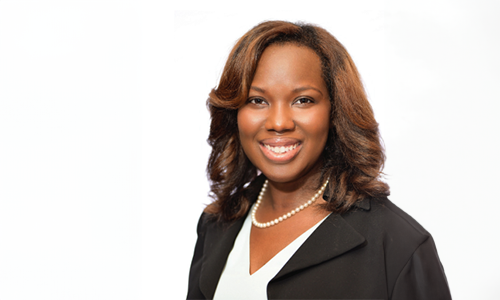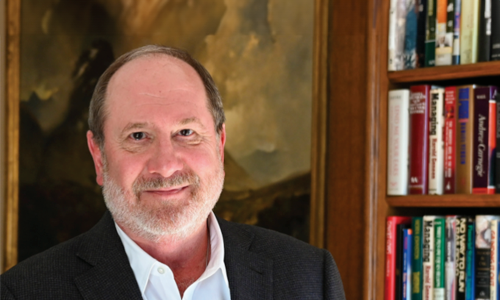As business expands globally, so much rests on the ability of people from different
cultures and countries to communicate faster than ever. But emphatic messages often
dissolve into confusion. What begins as a significant conversation never reaches the
other side of the table.
It’s not just about what happens when a non-native speaker commits a language faux
pas, or associates from traditionally passive Eastern nations allow a more aggressive
Westerner to dominate a meeting long before they begin to interject their own views.
Of course, these aren’t just superficialities, and they do need to be overcome.
But bridging the cultural chasms that divide nations throughout the world lies at
the core of unifying the world, and it requires radical shifts in perception—not just
a course on international etiquette coupled with utilitarian foreign language programs.
It demands nothing less than a worldwide paradigm shift, says Daniel Butler, the Thomas
Walter Professor in Marketing at Harbert College.
“It means looking in the mirror first, saying, ‘Who am I and what do I do, and why
do I do it?’” Butler says.
“People need to understand that just because they have a view, it’s not the right view.
It’s their view.””
Butler, who has spent considerable time in more than 30 countries while studying and
working in business and international marketing, says that sense of self-awareness can
transform the way you relate to the people around the world.
To grasp and overcome geographic and cultural challenges, he adds, students, professionals,
and anyone who regularly engages in business with people from other nations need to
step out of their comfort zones, experience at least a taste of life among their global
cohorts, and take advantage of diverse cultural opportunities in their own communities.
He says most of us see the world through an ethnocentric lens; we’re comfortable with
the familiar and apprehensive about anything outside our limited geographic boundaries.
People with polycentric views may see themselves as culturally enlightened. Because
they’ve been to the Bahamas a couple of times, they assume they can say, “I know what
the world is like.”
People who have a big-picture, whole-world mentality are geocentric. They really do
know how the world operates. They have lived and absorbed it. Butler says it’s not
difficult to reach this stage.
“If you just have an open mind and an adventuresome attitude, you’ll be surprised
to find what’s on the next corner,” he says.
In the past decade, the insular way of life that’s become the norm in the US has given
way to a more curious, adventurous spirit. And it’s being led by millennials—the generation
born between 1981 and 1996, according to the Pew Research Center. There are roughly
73 million millennials in the US alone, and they comprise 20 percent of all international
travelers, the United Nations estimates.
And when they go abroad for business, they tend to make time for cultural enrichment.
They savor local experiences. They stay in local neighborhoods, set their own routes,
dine on authentic cuisine. A recent study from Airbnb found that millennials are spending
their money not on things, but on travel, taking about three or four international
trips a year. And on those trips, most insist on living like the locals.
Along with sites such as Hostels.com and Couchsurfing.com, Airbnb operates as a “home-away-from-home”
in foreign lands. This has become the go-to model for young travelers all over the
world.
Tara Cappel founded For the Love of Travel, a company that organizes trips for young
professionals seeking to travel the world with a sense of purpose. With a combination
of wanderlust and intense longing for authenticity, the generation is shifting the
nation’s global outlook.
“Millennials don’t just see travel as something we do, we identify with it,” Cappel
told Forbes. “We consider ourselves citizens of the world and we have an enthusiastic desire
to immerse ourselves in another place and return rejuvenated, inspired, and ready
for our next adventure. We are travelers.”
Cappel added that where designer goods used to be the means for “showing off,” authentic
experiences in niche locales of foreign countries—she mentions studying the art of
ravioli with a Tuscan chef as an example—have far more currency among her peers. They
may be racking up social media posts of their travels just for status, but Cappel
says the effect is likely deeper, more long-lasting, and impactful.
“. . . I think the more people travel, the more present they become, and eventually
they’re happier with one great photo than a photo of everything,” she says.
That perspective has increasingly merged into the mainstream.
Hyatt Hotels’ debut of an ad during the 2017 Academy Awards broadcast—the brand’s
first television ad since 1985—provided a pivotal moment of clarity for its audience,
researchers Greg Paull and Shufen Goh wrote in their book Global CMO.
The hotel group underscored the need for cultures to come together with its World
of Hyatt global platform. Paull and Goh reported that the spot, a series of personal
vignettes dramatizing cultural barriers transforming into cross-cultural unity, garnered
3 million views on YouTube and “sparked conversations around the power of understanding,
brought awareness to cultural barriers and showed how we can break through them to
stand together and unite as one.”
In the spot, scenes of people from myriad cultures encountering one another, first
under clouds of suspicion and then through images of kindness and cooperation, unfold
as a cover of Dionne Warwick’s ‘60s hit song “What the World Needs Now Is Love” sets
the tone.
Of course, that’s a utopian vision. But maybe it’s something the world can aim toward.

 Degrees & Programs
Degrees & Programs
 Faculty & Staff
Faculty & Staff
 Career Development
Career Development
 Recruiters & Industry
Recruiters & Industry



